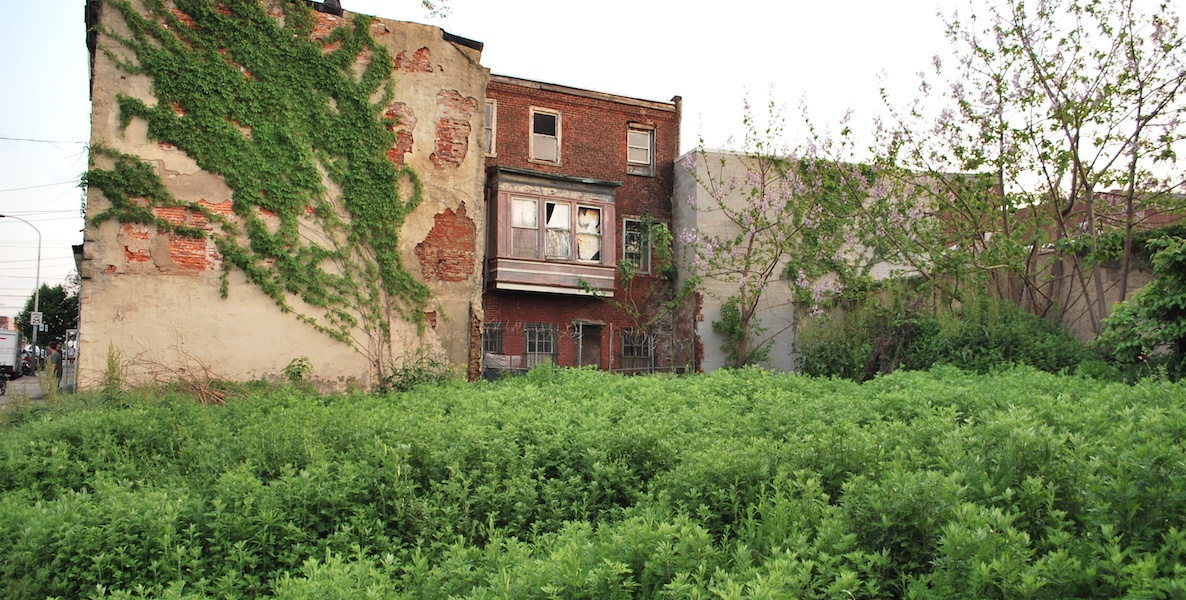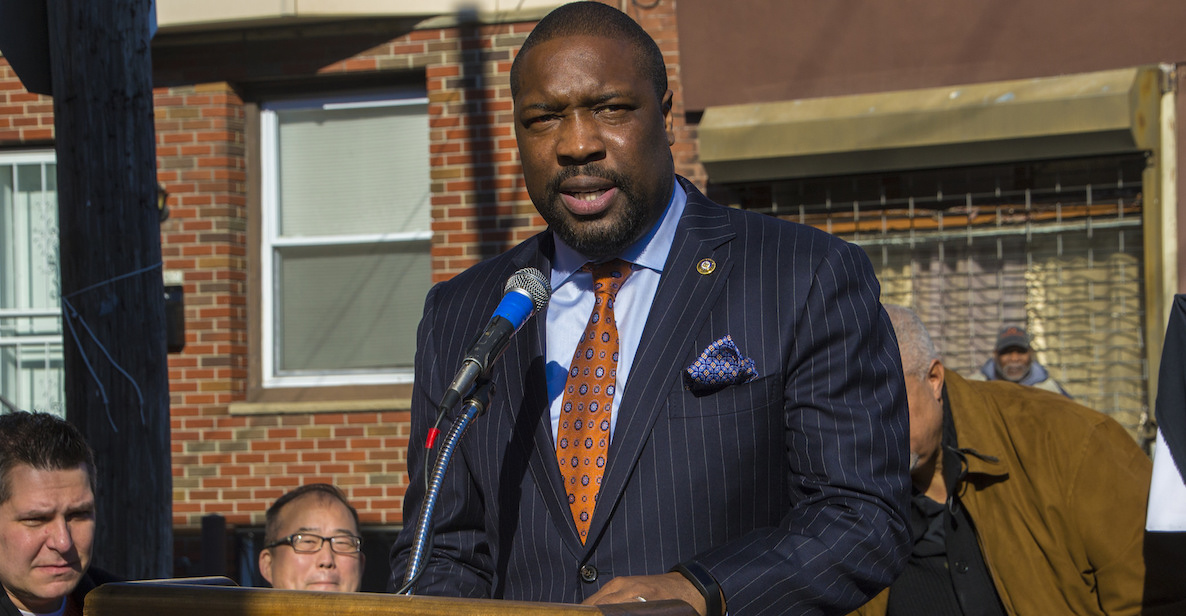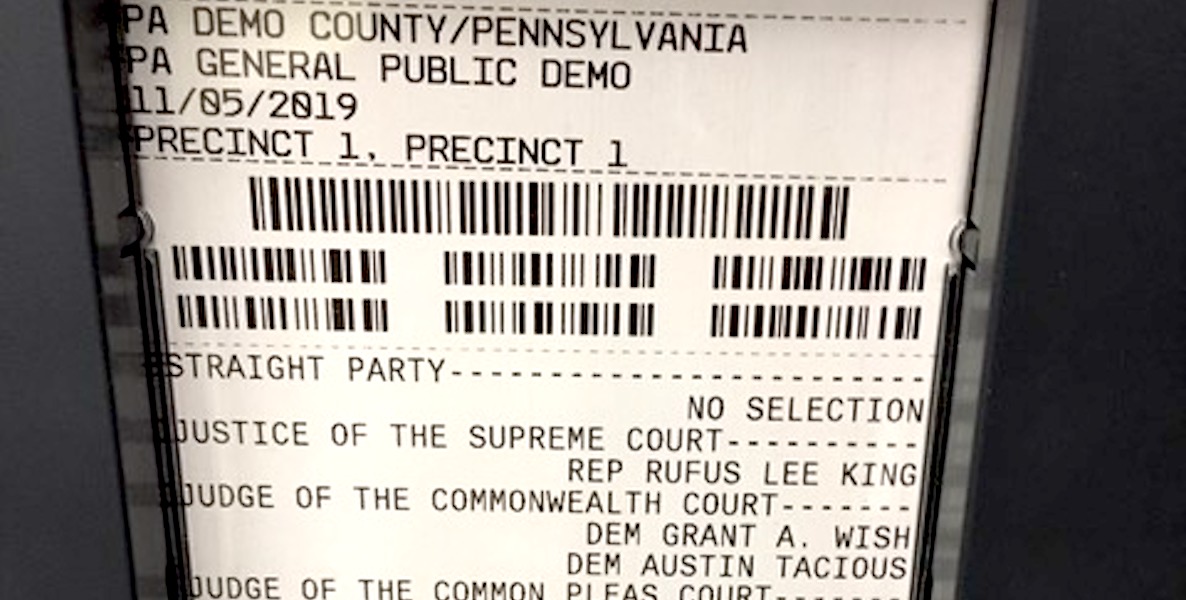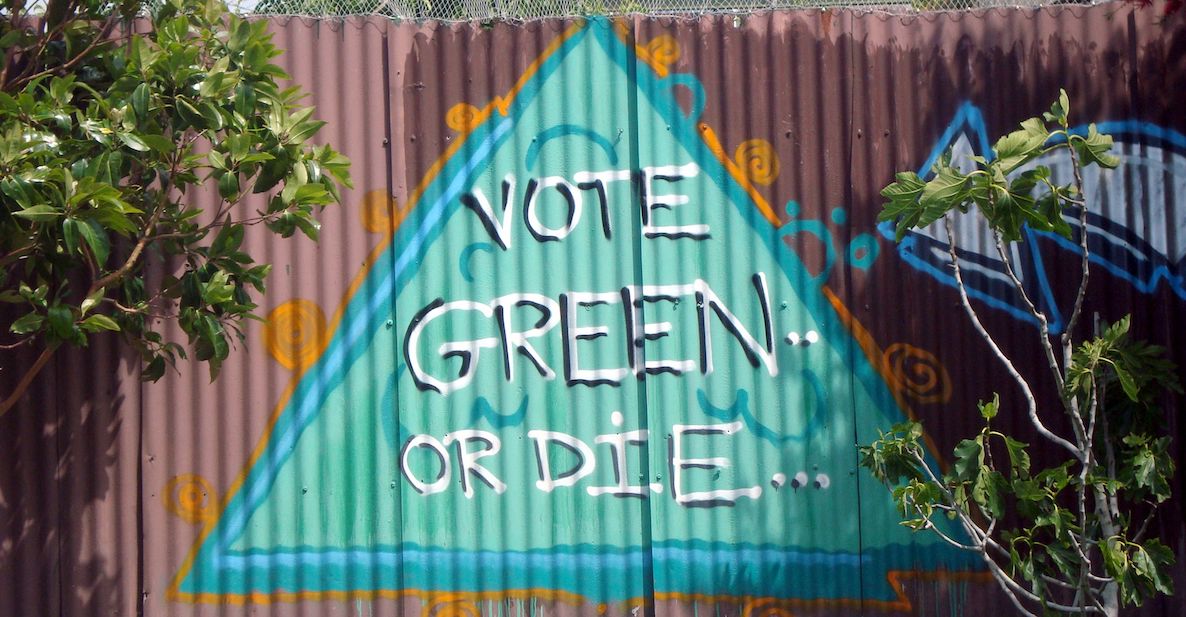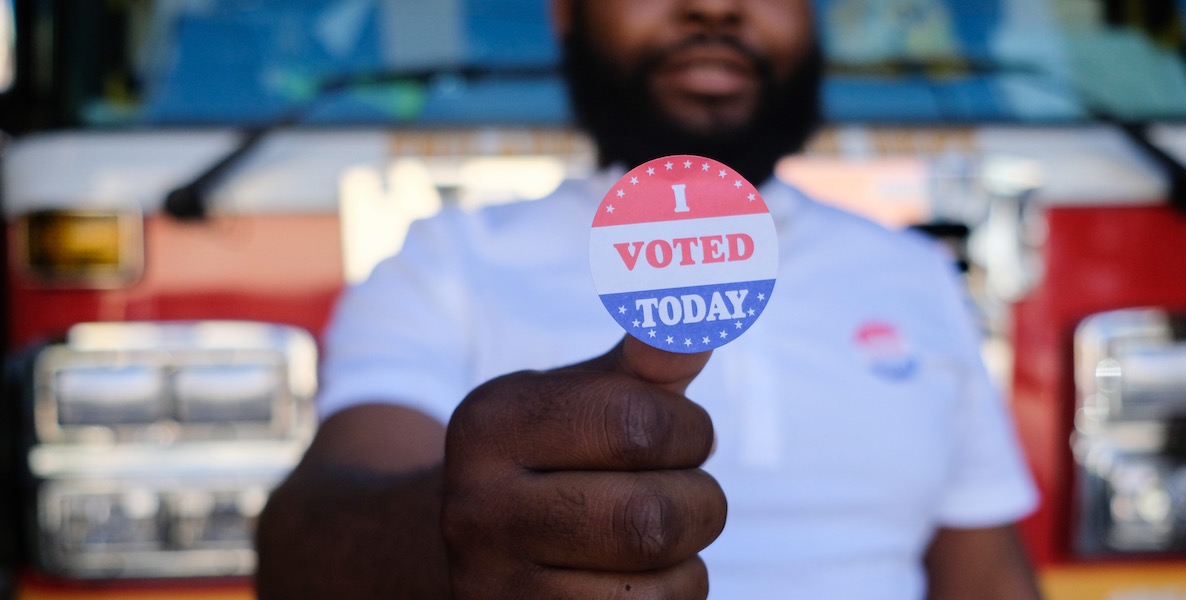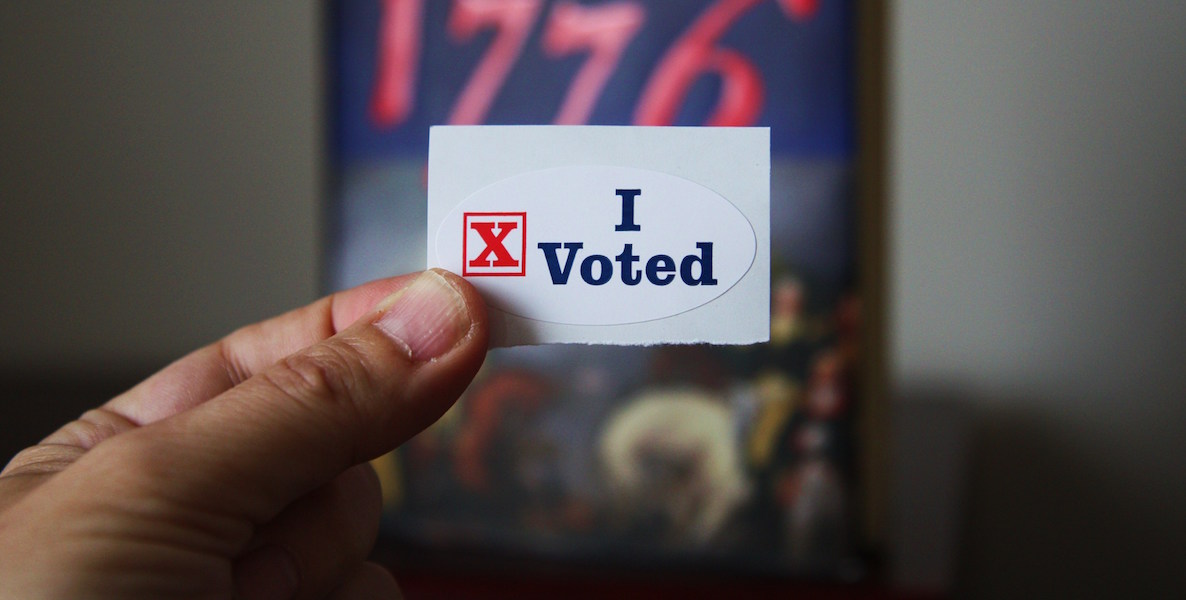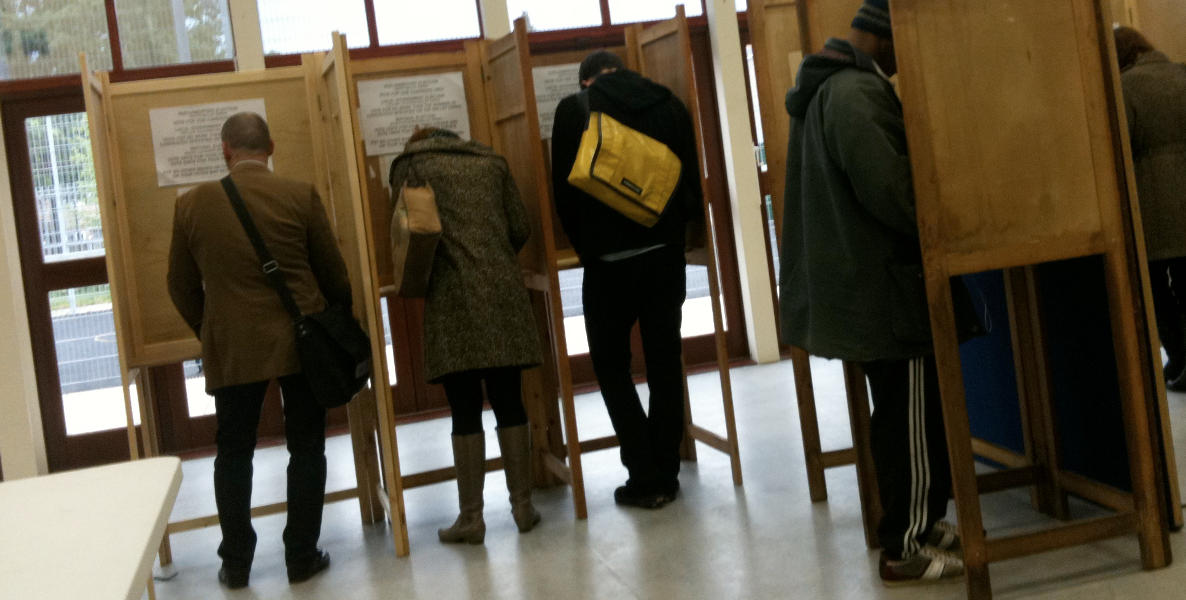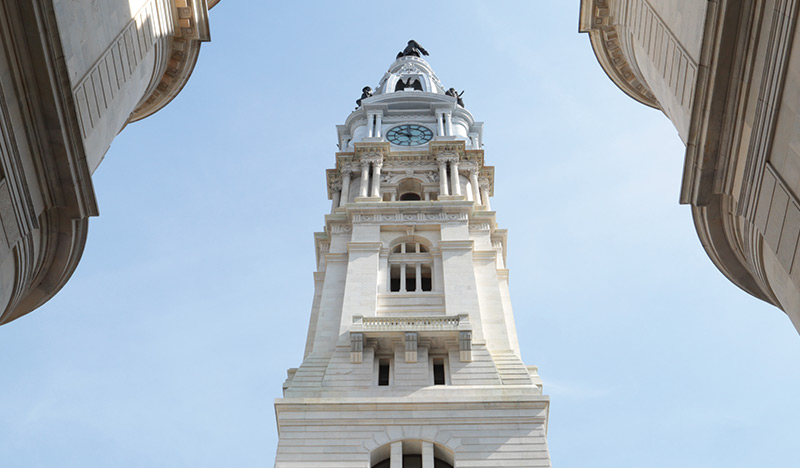Pennsylvania has been pretty far behind the times when it comes to voting access, and has lagged a lot of other states in taking proactive steps to make it easier to vote like allowing early voting, same-day registration, automatic registration, and more absentee and vote-by-mail options. But that could change if the State Government Committee, and ultimately the Republican legislative leadership, allows a raft of newly-proposed voting reforms to come up for a vote in Harrisburg.
Voting access has unfortunately become polarized along partisan lines, with Republicans generally trying to make it harder to vote when they gain power in state governments, and Democrats trying to make it easier when they’re in power, based on the political calculation that Democratic-leaning constituencies are more likely to be deterred by inconvenient rules, or outright voter suppression tactics, in some states.
Back during Governor Tom Corbett’s term, when Republicans had a full trifecta, they passed a voter ID bill that was later ruled unconstitutional before it could go into effect. Republican leadership also appointed conservative firebrand Daryl Metcalfe as chair of the State Government Committee which has jurisdiction over all election-related legislation, and he had used that position to block any expansion of voter access. At an event a couple years ago, Rep. Jared Solomon told a story about a bill he and a Republican colleague introduced to change references to “electors” in the Election Code to “voters,” but even this extremely mild change was too much for Metcalfe.
Pennsylvania has been pretty far behind the times when it comes to voting access, and has lagged a lot of other states in taking proactive steps to make it easier to vote
But now, after the 2018 midterms where Democrats substantially chipped away at the Republican House majority, Republican leadership has appointed Metcalfe to the Environmental Resources and Energy Committee, and replaced him with a new Chairman, Garth Everett, who is at least rhetorically signaling he’s open to some voting changes.
Jan Murphy reports that the 2019 session is seeing a raft of voting-related legislation introduced, and it seems like a novel development that some Republicans are getting in on the action:
Between a news conference and a House committee meeting, Tuesday shined a spotlight on the dozens of Republican and Democratic-backed bills tackling reforms that expand the ways citizens can vote, when they can vote, where they can vote as well as other electoral changes […]
Meatier issues including opening up primaries to unaffiliated voters, same day registration, moving up the presidential primary election date, allowing voters to cast ballots as much as two weeks before Election Day, and no-excuse absentee voting also are on both the House and Senate state government committees’ plates.
“It’s incredibly encouraging that lawmakers in both chambers and on both sides of the aisle continue to engage in meaningful discussions about proposals that would update Pennsylvania’s election laws,” said Ray Murphy, state coordinator for Keystone Votes. “The challenge is maintaining that momentum.”
[Rep. Jared Solomon] is working on a comprehensive bill that touches on a wide gamut of election processes and practices such as moving to a randomized ballot position so no one candidate holds the advantage of having the top ballot spot, early voting, open primaries, and bringing more transparency to information collected by county election boards.
It’s unclear yet what will ultimately have legs, but it’s an encouraging sign that some of these ideas will even get a hearing in the State Government Committee, instead of being summarily rejected like they were when Daryl Metcalfe was in charge.
Given all the interest in making changes to the electoral system, House State Government Committee Chairman Garth Everett, R-Lycoming County, said this conversation that began in his committee on Tuesday is not one that he intends to allow to stall out before a bill makes it out of his committee.
“We’re going to do this,” Everett said. “On the other hand, there’s no rush. I don’t see that were on a deadline. We’re going to work through the process.”
Here’s a quick rundown of some of the more interesting bills introduced, or yet to be introduced, and what they would do.
Same-Day Registration
The same-day voter registration bill from Rep. Anthony DeLuca does exactly what it sounds like: you just show up to the polling place and fill out the registration form, and then you can vote. The voter then fills out a provisional ballot, and the Department of State has up to 10 days to approve or deny the registration. The provisional ballot can’t be counted until the Department of State approves.
Automatic Registration
Why do you need same-day registration if you have automatic voter registration? This one is a little less straightforward than the name suggests. The “automatic” part comes in when people undertake any type of “applicable transaction” with any part of state government designated as an “automatic voter registration agency.” So it’s not going to cover absolutely everybody who’s a Pennsylvania citizen, but a lot of people who interact with state government agencies would get registered the same way that you can update your registration at the PennDOT driver’s license centers.
In Rep. Sara Innamorato’s bill, these include the Department of Aging, Department of Health, Department of Human Services, the Insurance Department, the Department of Labor and Industry, the Department of Revenue, Department of State, Department of Transportation, the Pennsylvania Fish and Boat Commission, the Pennsylvania Game Commission, and “any other department, board, commission, agency or office of the executive branch that approves participation in a program or access to a benefit or service” as a catch-all. So if you go to renew your fishing license, you can be registered to vote at the same time.
Early Voting
Rep. Jennifer O’Mara’s early voting bill would establish a 30-day voting period prior to Election Day, and would place different requirements on counties of different sizes to open specific numbers of polling locations in their most populous municipalities during certain hours, including weekends.
No-Excuse Absentee Voting
Pennsylvania election law currently requires that voters intending to cast absentee ballots have a reason for doing so, and it can’t just be that you’d prefer to vote early through the mail. Rep. Rabb’s omnibus bill would move the state to a no-excuse absentee voting policy, so anyone can mail in a ballot, no questions asked. Voters would also be able to apply for the first time to become permanent absentee voters, which would help people who have trouble leaving their homes to vote. Currently, this group has to request an absentee ballot for each election, but having permanent absentee status would mean a ballot is automatically mailed to them.
Ranked-Choice for Philly Local Elections
Senator Anthony Williams introduced a potentially exciting new bill that would establish ranked-choice voting for Philadelphia’s local elections, which would become technologically possible with the touch-screen voting machines that we are likely getting. (Those machines would also allow reforms like randomized ballot position, which Rep. Jared Solomon also plans to introduce, according to Murphy’s article.)
The Williams bill isn’t listed yet, but is described in a separate article in the Pennsylvania Capital-Star. We’ve written previously about the virtues of ranked-choice voting, which tends to advance the candidates with the most support by transferring support to voters’ second and third choices after their favorites are eliminated. There’s a twist with this proposal though, where Williams is also proposing a single election with both Democrats and Republicans on the same ballot, removing the salience of the Democratic primary as the most consequential election.
Articles by Jon GeetingRead More
“Williams plans to propose a single election for municipal races, with all parties’ candidates are on a single ballot. Voters would then preferentially rank candidates.
A winner would be determined by dropping the candidate with the fewest first choices, and redistributing votes to their second choice. The next lowest performing candidate would be dropped, and the process would continue until a winner is decided.”
It’s unclear what the political prospects for this bill may be, considering its sponsor and the fact of the failed Williams Mayoral run, but we hope to see the Philadelphia delegation get on board and work to amend it to their liking because it’s a good idea that would greatly improve local elections with large fields of candidates.
Open Primaries
One proposal with some bipartisan support is for open primaries, which would allow unaffiliated voters to vote in either the Democratic or Republican primaries. Senate President Pro Tempore Joe Scarnati is one powerful supporter, and there is some cross-over support within both parties.
Unaffiliated voters are the fastest-growing cohort here in Philadelphia, and there are now more unaffiliated voters than registered Republicans. With open primaries, all of these voters would be eligible to vote in the Democratic primary, which tends to be the really decisive election for most local offices here. As this group skews younger, the political upshot of allowing open primaries would be a boon to the kinds of candidates who tend to do better with younger voters.
Voter ID II
One of these things is not like the others. Republicans aren’t done trying to pass some version of a Voter ID law, even though their last bill was struck down as unconstitutional. It’s not immediately clear how the version just introduced by Rep. Jeff Wheeland could avoid the same constitutional issues that befell the previous attempt because it looks conceptually pretty similar.
PA Supremes Strike Down Fusion
Fusion voting wasn’t among the recent bills introduced, but it could be if lawmakers decide it’s worth taking up after the PA Supreme Court struck down cross-filing for legislative seats. We wrote previously about the politics of fusion voting and why groups like Working Families Party want to see it legalized for local elections. Cross-filing already exists for judicial and school board seats, but the Supremes rejected its application to state Rep and other legislative elections. Rep. Rabb, who has been leading the charge for some of the other reforms mentioned above, was one of the players in the WFP lawsuit, having cross-filed as a Working Families Party candidate, so it seems likely he’d be interested in a legislative solution.
Jon Geeting is the director of engagement at Philadelphia 3.0, a political action committee that supports efforts to reform and modernize City Hall. This is part of a series of articles running in both The Citizen and 3.0’s blog.
Photo via Flickr


